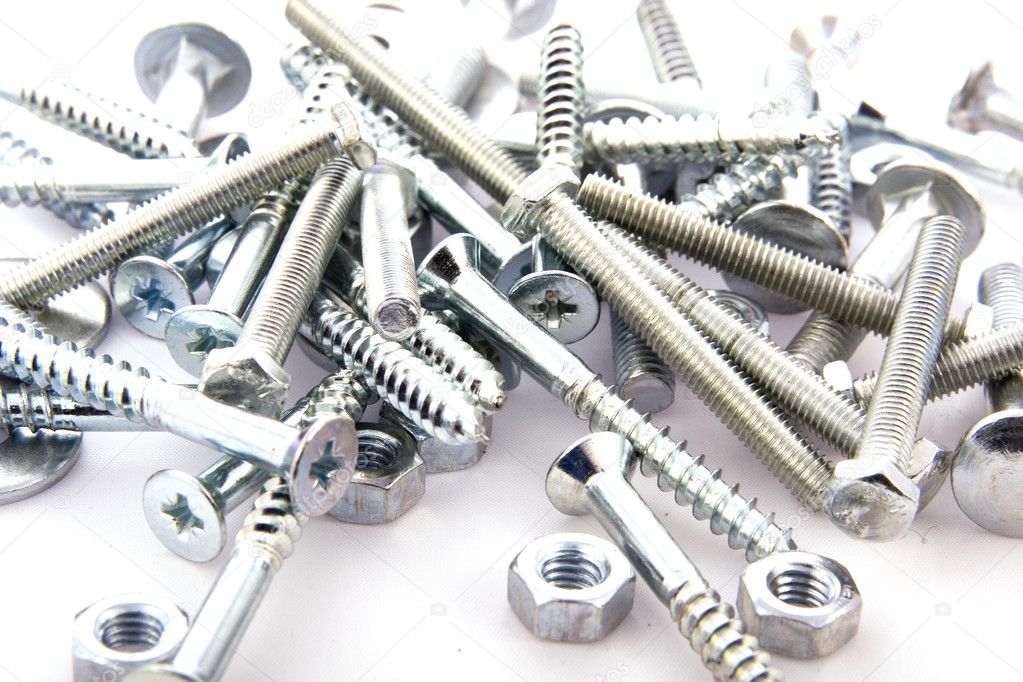As you embark on a building and do-it-yourself project, it is crucial to choose appropriate nuts and bolts is paramount. These fasteners act as a foundation of numerous uses, providing structure, stability, and safety. Given a myriad of options available—each designed for distinct purposes—grasping the fundamentals of nuts and bolts is essential for anyone who want to address repairs, construct items, or undertake major renovations.
In this comprehensive guide, we shall delve into the different types of nuts and bolts, exploring their applications and functions. From common bolts to specific fasteners, we’ll cover all you should understand to make wise choices and select appropriate hardware for your projects. Whether you're wondering about the distinction of machine-type bolts and structural bolts and trying to figure out when to use a flange nut, this article is your comprehensive guide for understanding the realm of nuts and bolts.
Categories of Fasteners and Bolts
When it comes to grasping nuts and bolts, it's crucial to identify the different types available and their particular applications. Bolts are typically classified based on their configuration and functionality. Common types include hexagonal bolts, which feature a hexagonal head and are ideal for general fastening tasks; carriage bolts, characterized by a rounded head and a square neck for added grip; and lag bolts, designed for heavy-duty applications and made with a wide, flat head that allows for greater torque. Each type serves individual purposes and is often chosen based on the requirements of the project at hand.
Nuts, the counterparts to fasteners, also come in multiple shapes and sizes. Regular hex nuts are the most commonly used, allowing for safe fastening when paired with fasteners. Locking nuts provide extra security against loosening, making them ideal for high-vibration applications. Flanged nuts, which have a wider base, distribute pressure more evenly and are used where a larger surface area is helpful. Understanding these options helps in choosing the right nut for multiple fastening situations, ensuring both safety and efficacy.
Along with standard types, specialty nuts and bolts cater to unique demands in specific industries. For instance, titanium fasteners are favored in aerospace applications for their lightweight yet durable nature, while nylon locking nuts prevent loosening due to vibration. Comprehending these differences not only aids in making informed choices but also enhances the overall integrity of constructions or repairs. Choosing the right combination of nuts and bolts is vital in achieving the desired strength and durability for any job.
Choosing the Proper Fastener
Choosing the appropriate fastener is essential for the effectiveness and strength of any project. The decision between bolts and nuts often depends on the materials being joined and the necessary strength. For timber applications, lag bolts are commonly used due to their ability to anchor stably, while in metalwork, machine bolts with matching fasteners are the preferred option. Grasping the particular requirements of your task, such as load-bearing and surrounding conditions, will guide you in making the right choice.
Additionally, the type of threads plays a significant role in fastener selection. Rough threads are generally better for softer substances, which allows for faster assembly, while tight threads provide increased grip in harder substances. If you are uncertain which type to use, it is helpful to familiarize yourself with the nuances of threading, as well as the specifications for metric and imperial system fasteners. An informed decision can avert potential problems down the road, ensuring optimal operation and safety.
In conclusion, taking into account the surface treatment and substance of the fasteners is crucial. Stainless bolts offer excellent corrosion resistance, making them appropriate for outdoor projects, while zinc-plated fasteners may serve well in arid environments. Be sure to evaluate the particular conditions your fasteners will face, including possible interaction to moisture or harsh substances, to select substances that will withstand the test of time. This focus to precision in choosing the appropriate fastener will ultimately enhance the durability and trustworthiness of your project.
Materials and Coatings and Surface Treatments
When select nuts & bolts, the substances used take a key role in determining their functionality & suitability for particular applications. Typical materials are steel, copper alloy, and aluminum, with each providing distinct benefits. Iron is chosen for its robustness and longevity, making it ideal for intensive projects. Copper alloy, on the other hand, shows excellent resilience to corrosion & is often utilized in plumbing & electrical projects. Titanium is renowned for its light properties & exceptional strength-to-weight, making it a preferred choice for aviation & cutting-edge technical applications.
Finishes considerably enhance the durability & performance of fastening devices. Zinc coatings & galvanizing are frequently used methods for protecting steel fasteners from oxidation, with galvanization providing a more robust protective coating. However, discover this info here of coating is contingent upon the conditions in which the fasteners operate. For example, SS fasteners naturally resist corrosion without extra coating, making them suitable for outdoor & marine applications where exposure to moisture is a factor of importance.
Comprehending the materials and coatings that are available helps ensure that you pick the suitable nuts for your particular project needs. Regardless of whether you need bolts that can tolerate aggressive environments or those that offer consistent strength, knowledge of materials will empower you to make educated decisions that enhance the longevity & performance of your construction.

